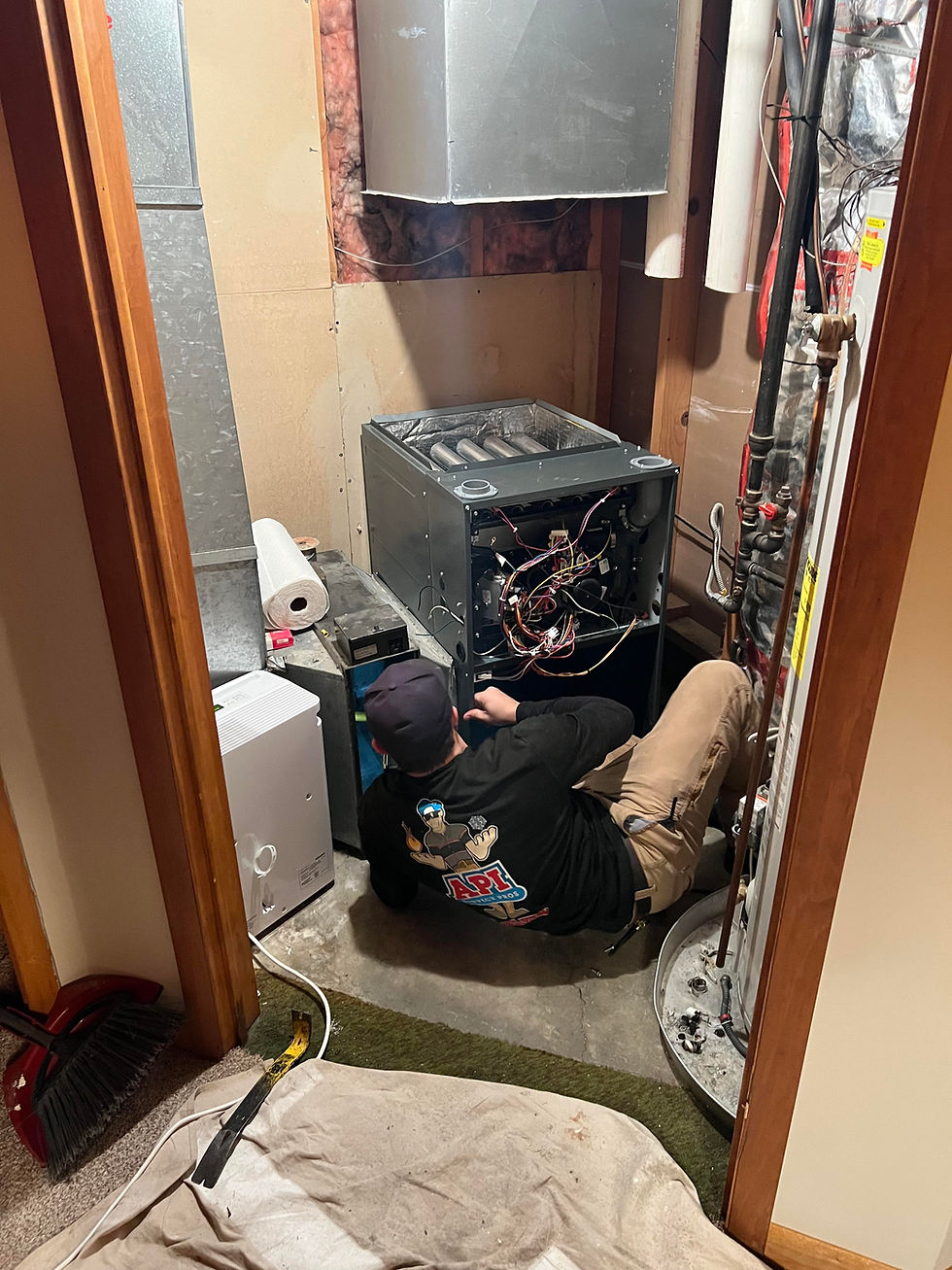Chilly Challenges: Why Heat Pumps Sometimes Struggle in Cold Weather
- API Service Pros

- Jan 24, 2024
- 2 min read
Heat pumps are hailed as efficient and eco-friendly solutions for maintaining comfortable temperatures in homes. However, when the winter chill sets in, some homeowners may notice their heat pumps working overtime or struggling to keep up. In this blog post, we'll explore the reasons why heat pumps might face challenges in extremely cold weather and offer insights into optimizing their performance.

1. Understanding Heat Pump Basics:
- Begin by unraveling the basic principles of how heat pumps operate. Unlike traditional heating systems that generate heat, heat pumps extract warmth from the outside air or ground and transfer it indoors. This process becomes more challenging as outdoor temperatures drop.
2. The Temperature Threshold:
- Heat pumps operate efficiently in a specific temperature range. As outdoor temperatures plummet, the amount of available heat for the pump to extract diminishes. Learn about the temperature threshold beyond which heat pumps may struggle to provide sufficient warmth.
3. Supplemental Heating Methods:
- Explore supplemental heating methods that can complement your heat pump during extremely cold spells. Options like electric resistance heating or dual-fuel systems can step in when the heat pump's efficiency is compromised by frigid temperatures.
4. Defrost Cycles:
- Heat pumps may occasionally enter defrost cycles, especially in cold and humid conditions. Understand how these cycles work, why they are essential, and how they may impact the heating performance during the winter months.
5. Proper Sizing and Insulation:
- Ensure your heat pump is appropriately sized for your home, and that your home is well-insulated. Inadequate sizing or poor insulation can exacerbate the challenges faced by heat pumps in cold weather.
6. Regular Maintenance:
- Delve into the significance of regular maintenance for your heat pump. A well-maintained system is more likely to perform optimally, even in challenging weather conditions. Explore the key maintenance tasks that contribute to efficient heat pump operation.
7. Advanced Heat Pump Technologies:
- Stay abreast of advancements in heat pump technologies designed to tackle cold weather challenges. From variable-speed compressors to smart defrost controls, discover how these innovations aim to enhance performance in colder climates.
8. Cold Climate Considerations:
- If you live in an area with consistently harsh winters, it's crucial to consider heat pump models specifically designed for cold climates. Learn about features and technologies that make these units better equipped to handle extreme cold.
While heat pumps may face challenges in extremely cold weather, understanding the reasons behind their struggles empowers homeowners to take proactive measures. By incorporating supplemental heating methods, ensuring proper sizing and insulation, and staying informed about advancements in heat pump technologies, you can optimize the performance of your heat pump even when the mercury drops. Remember, a well-maintained and thoughtfully chosen heat pump can still be a reliable and energy-efficient solution for year-round comfort.





